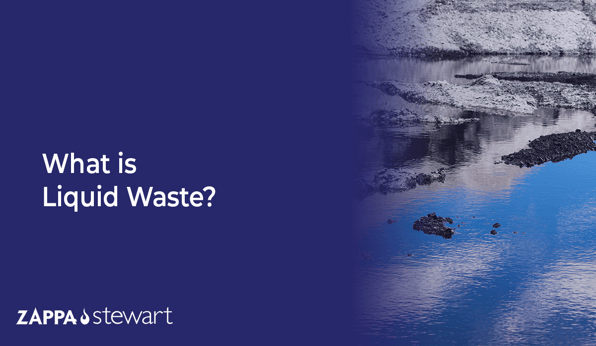Reclaim Waste for Beginners
Reclaim Waste for Beginners
Blog Article
Not known Incorrect Statements About Reclaim Waste
Table of ContentsThe Best Guide To Reclaim WasteThe Definitive Guide to Reclaim WasteReclaim Waste - An OverviewHow Reclaim Waste can Save You Time, Stress, and Money.The smart Trick of Reclaim Waste That Nobody is Discussing
Discover the kinds, occurrences, and forms of liquid waste. Domestic sewage waste refers to the waste and items from a household septic system. This kind of waste is produced by humans in houses, colleges, and other structures. This only includes septic systems that have a drain field. The proper management and disposal of residential sewer waste require liquid waste to be transferred to a sewage therapy plant where the proper approaches and devices are applied to cleanse and take care of waste.
Business waste often consists of possible risks, such as flammable products or a mixture of fluid and strong waste items, and needs a much more advanced and detailed disposal process. The disposal of commercial waste usually entails the purification of waste before transportation to guarantee risk-free and appropriate disposal. Industrial waste is produced from by-products and drainage of commercial processes and manufacturing.
This type of waste can not utilize the same sewer management transport or processes as septic or business liquids. The hazardous waste administration process requires the inspection and testing of liquid waste before it goes through the disposal procedure (liquid waste disposal melbourne). Drainage waste is the liquid waste that comes from overflow and excess stormwater in highly booming locations or cities
Overflow waste can cause contamination and flooding otherwise handled correctly. Find out more regarding drain cleaning and waste administration. Guaranteeing proper waste management can protect against catastrophes and lower ecological harm. Both individuals in property setups and specialists in business or production sectors can gain from understanding the processes and guidelines of liquid waste administration.
Getting The Reclaim Waste To Work
Call PROS Solutions today to learn more about our waste administration and disposal solutions and the appropriate methods to look after the fluid waste you generate.
(https://www.tumblr.com/reclaimwaste1/766851148823068673/at-reclaim-waste-were-a-national-solutions?source=share)This supposed 'wastewater' is not only an essential source but, after treatment, will certainly be released to our land, waterways or the ocean. Used water from toilets, showers, bathrooms, cooking area sinks, washings and industrial processes is understood as wastewater.

water used to cool machinery or tidy plant and tools). Stormwater, a form of wastewater, is drainage that flows from farming and urban locations such as roof coverings, parks, gardens, roadways, courses and seamless gutters into stormwater drains, after rain. Stormwater moves untreated straight to local creeks or rivers, eventually getting to the ocean.
The smart Trick of Reclaim Waste That Nobody is Talking About
In Queensland, the majority of wastewater is dealt with at sewage treatment plants. Wastewater is transported from residential or industrial sites via a system of drains and pump stations, known as sewerage reticulation, to a sewage treatment plant. City governments build, keep and operate most sewage treatment plants. Operators are certified under the Environmental Security Act 1994 to release treated wastewater at an appropriate ecological standard into rivers.
The Department of Natural Resources encourages city governments concerning managing, operating and keeping sewage systems and therapy plants. In unsewered locations, city governments might need owners to set up specific or house sewage treatment systems to deal with domestic wastewater from commodes, cooking areas, shower rooms and washings. The Division of Natural Resources authorizes using home systems when they are shown to be efficient.
Most stormwater obtains no therapy. In some new class, therapy of some stormwater to eliminate litter, sand and crushed rock has actually started making use of gross contaminant catches. Wastewater therapy takes place in 4 stages: Gets rid of strong issue. Bigger solids, such as plastics and other things mistakenly released to sewers, are gotten rid of when wastewater is gone through displays.
Makes use of tiny living organisms understands as micro-organisms to damage down and remove remaining liquified wastes and great particles. Micro-organisms and wastes are included in the sludge.
Little Known Questions About Reclaim Waste.
Nutrient removal is not readily available at all More about the author sewage therapy plants because it requires pricey specialist tools. Clear fluid effluent produced after therapy may still have disease-causing micro-organisms - industrial wastewater treatment.

Most wastewater moves right into the sewerage system. Under the Act, neighborhood governments administer approvals and licences for ecologically appropriate activities (ERAs) involving wastewater releases that could have a local effect.
The Only Guide for Reclaim Waste
Otherwise, examples are considered laboratory analysis. Often lots of tests are needed to establish the levels of each of the different contaminants such as oils, heavy steels and chemicals in water. Monitoring gives accurate information concerning water top quality and can validate that licence conditions are being satisfied. The details acquired through tracking offers the basis for making water high quality decisions.
Report this page